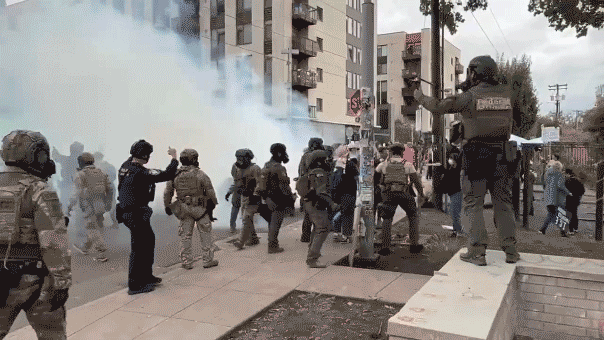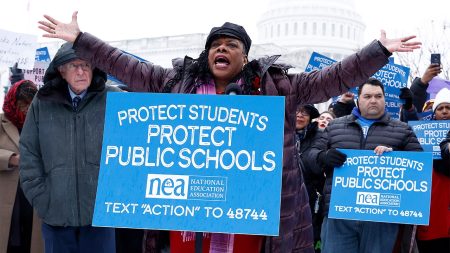Federal Judge Halts Trump’s National Guard Deployment to Portland Amid Protests
In a significant legal setback for the Trump administration, a U.S. District Court issued a temporary restraining order on Saturday blocking the deployment of 200 National Guard troops to Portland, Oregon. The deployment had been ordered in response to anti-Immigration and Customs Enforcement (ICE) protests that the administration characterized as violent and threatening. Judge Karin Immergut, ironically a Trump appointee from 2019, sided with the State of Oregon and City of Portland, ruling that the president had exceeded both his statutory and constitutional authority in attempting to federalize the state’s National Guard without the governor’s consent.
The dispute began when President Trump issued a memorandum in June authorizing the federalization of National Guard troops, citing what he described as threats to federal employees and facilities during immigration enforcement protests. The situation escalated in late September when Trump announced on Truth Social his intention to deploy troops to what he dramatically called “war-ravaged Portland” to protect against “Antifa and other domestic terrorists,” authorizing “full force, if necessary.” Defense Secretary Pete Hegseth subsequently ordered the federalization of 200 Oregon National Guard members, directly overriding the objections of Oregon Governor Tina Kotek, who maintained that no public safety emergency existed that warranted such intervention. This conflict between federal and state authorities quickly moved to the courts, with Oregon and Portland filing suit against what they viewed as federal overreach.
At the heart of Judge Immergut’s ruling was her determination that Trump’s federalization order failed to meet the strict legal conditions under which a president can call up a state’s National Guard. Federal law permits such action only under exceptional circumstances—specifically invasion, rebellion, or an inability to execute federal law using regular forces. The judge found none of these conditions present in Portland, concluding that local and federal law enforcement remained capable of maintaining order despite the protests. This finding was crucial, as it established that the president had not merely made a questionable policy decision, but had acted beyond the scope of his legal authority. By exceeding these statutory limits, the court determined that the order also violated the Tenth Amendment by infringing on Oregon’s sovereign right to control its own National Guard forces.
The court’s analysis of potential harm proved equally decisive in granting the restraining order. Judge Immergut identified multiple forms of irreparable injury that Oregon would suffer if the federalization proceeded: constitutional harm from losing control over its Guard, operational harm from having troops trained for state emergencies diverted to federal service, and public safety risks. This multi-layered assessment of harm strengthened the state’s case that immediate judicial intervention was necessary. The court also emphasized that the public interest strongly favored restraint in this situation, highlighting America’s historical resistance to military intrusion into civil affairs. As Judge Immergut eloquently stated in her decision, “This country has a longstanding and foundational tradition of resistance to government overreach, especially in the form of military intrusion into civil affairs… This historical tradition boils down to a simple proposition: this is a nation of Constitutional law, not martial law.”
The dispute reflects deeper tensions regarding immigration enforcement under the Trump administration and conflicting narratives about the nature of the Portland protests. While federal officials pointed to violence reported near a Portland ICE facility in June to justify intervention, state authorities countered that by late summer, the protests had diminished in size and intensity, becoming largely peaceful. This factual disagreement underscores how differently federal and state officials perceived the same situation—with the Trump administration seeing a breakdown in law and order requiring military intervention, while Oregon’s leadership viewed the federal response as a dramatic overreaction to manageable protests. The judge’s ruling effectively endorsed the state’s assessment that regular law enforcement remained capable of handling the situation without National Guard involvement.
The temporary restraining order will remain in effect for 14 days, until October 18, unless extended by the court. Judge Immergut also denied the government’s request to stay or pause the order, ensuring that the National Guard troops would remain under state control for the immediate future. The case represents a significant assertion of judicial authority and state sovereignty against federal executive action. It also highlights the continuing tensions between the Trump administration’s aggressive approach to immigration enforcement and the resistance of progressive states and cities to what they view as federal overreach. As this legal battle unfolds, it serves as a reminder of the complex interplay between federal power, state rights, and constitutional limitations in America’s system of government—particularly when it comes to sensitive matters involving military deployment in domestic contexts.











